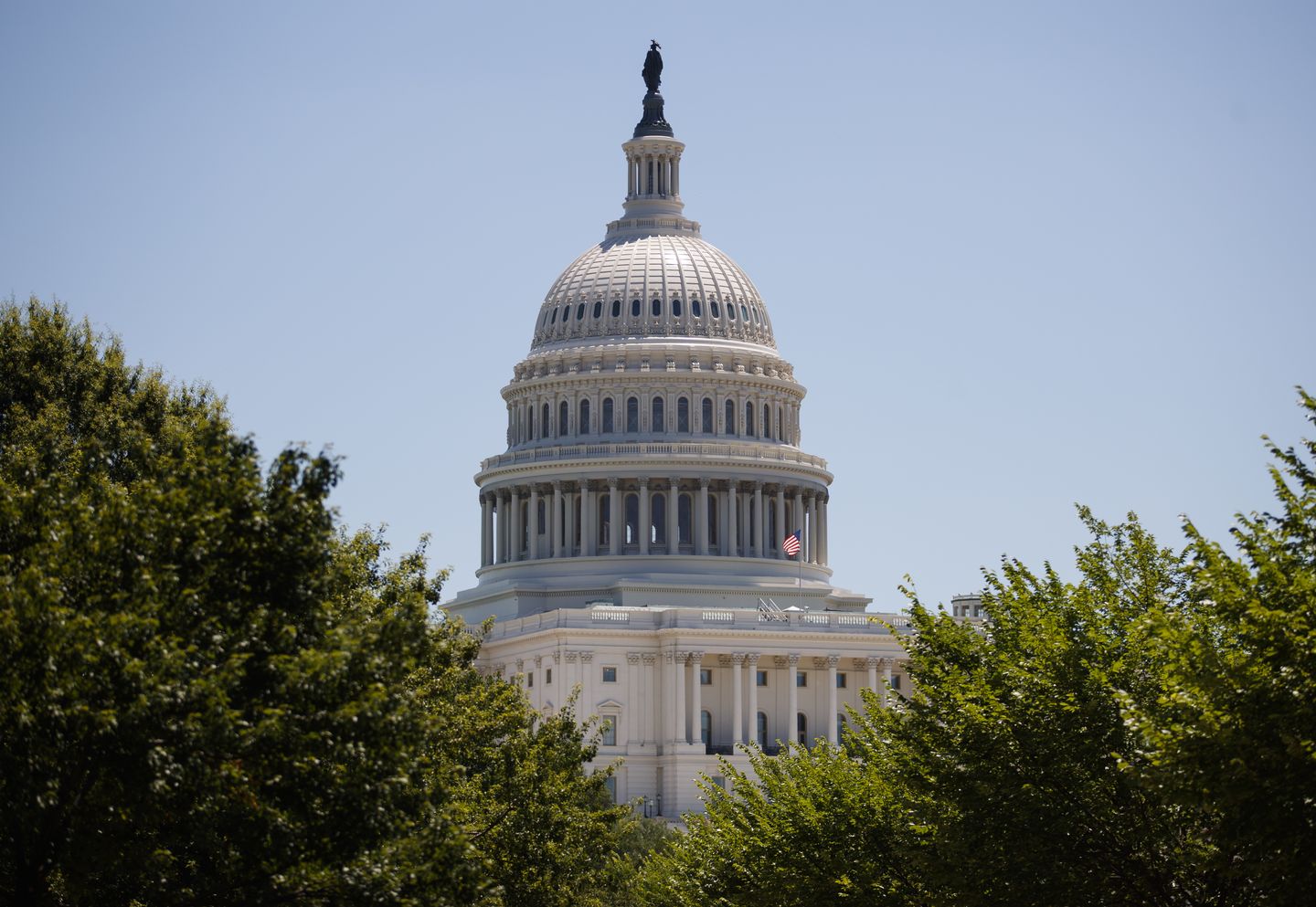
House Speaker Mike Johnson and Senate Majority Leader John Thune announced Thursday that both chambers are on the same page when it comes to achieving at least $1.5 trillion in spending cuts ahead of a House vote to adopt the Senate’s budget tweak.
It’s unclear if the promise will be enough to win over fiscal hawks, many of whom said they wanted a binding mechanism to force the Senate to accept steep spending cuts baked into the budget blueprint.
But Mr. Johnson predicted it would.
“I believe we have the votes to finally adopt the budget resolution so we can move forward on President Trump’s very important agenda for the American people,” the Louisiana Republican said.
His announcement with Mr. Thune, South Dakota Republican, comes after he punted a vote on the Senate’s budget tweak that had been set for Wednesday night. The House was set to vote on it Thursday morning.
If the House adopts the Senate’s rewrite without further changes, that will unlock the filibuster-proof budget reconciliation process where Republicans plan to pass sweeping tax and spending cuts, border and defense funding, and energy policy changes.
Mr. Johnson and over a dozen skeptics huddled off the House floor Wednesday night to find a path forward. The speaker left without a solution to the impasse but said he planned to hold a vote Thursday “one way or the other.”
Thursday morning, after heavy consultation with the White House and Senate, Mr. Johnson announced the two chambers are “directly aligned” on achieving at least $1.5 trillion in spending cuts.
That was the floor for spending cuts the House provided its committees in its budget instructions for the reconciliation bill, while the Senate set a meager $4 billion floor to preserve maximum flexibility, given strict chamber rules that risk derailing the bill if they fall short.
Mr. Thune always intended to pursue higher cuts, calling it one of the Senate GOP’s principal objectives. Standing alongside Mr. Johnson, he committed to the House’s floor.
“Our ambition in the Senate is we are aligned with the House in terms of what their budget resolution outlined, in terms of savings the speaker’s talked about, $1.5 trillion,” Mr. Thune said.
“We have a lot of United States senators who believe that is a minimum, and we’re certainly going to do everything we can to be as aggressive as possible to see that we are serious about the matter,” he continued. “Not only of making our federal government more fiscally sustainable, but also deficit reduction, which is critical to a lot of our members in the Senate, and I know to his members in the House.”
Mr. Trump, who has steadily increased pressure throughout the week on holdout Republicans to fall in line and support the Senate’s plan, weighed in on the measure’s progress Thursday morning, posting on Truth Social, “Great News! ’The Big, Beautiful Bill’ is coming along really well.
“Republicans are working together nicely. Biggest Tax Cuts in USA History!!! Getting close.”
Though the Senate’s budget rewrite does not directly include policy to extend Mr. Trump’s first-term tax cuts, its adoption would let Republicans begin hashing out the details of that and other issues in the reconciliation legislation.












